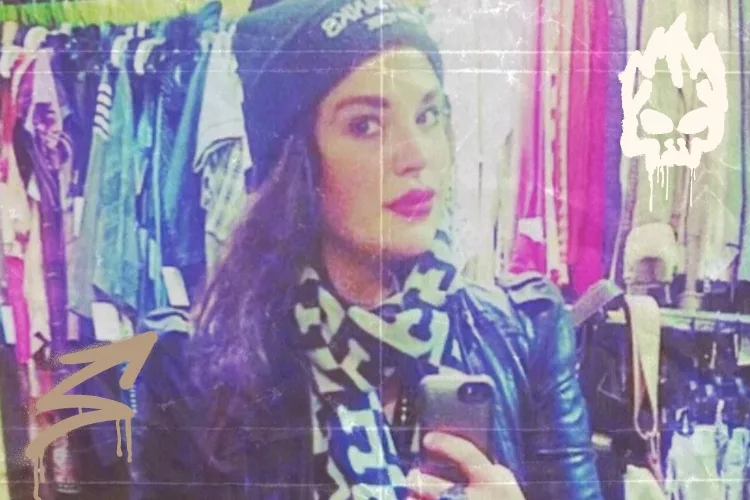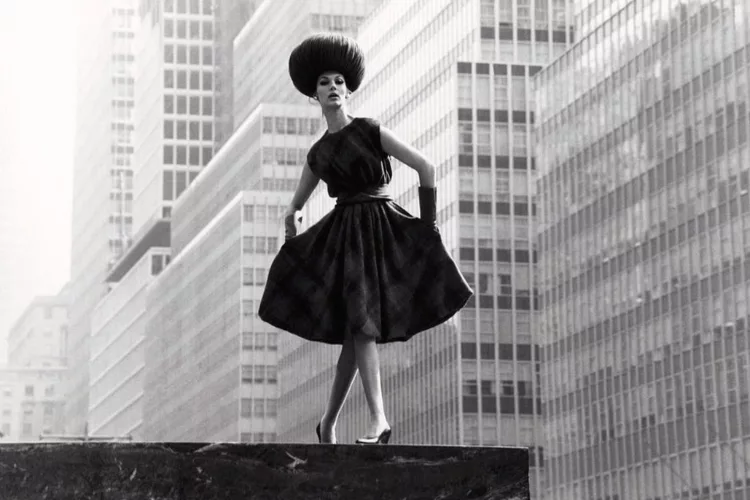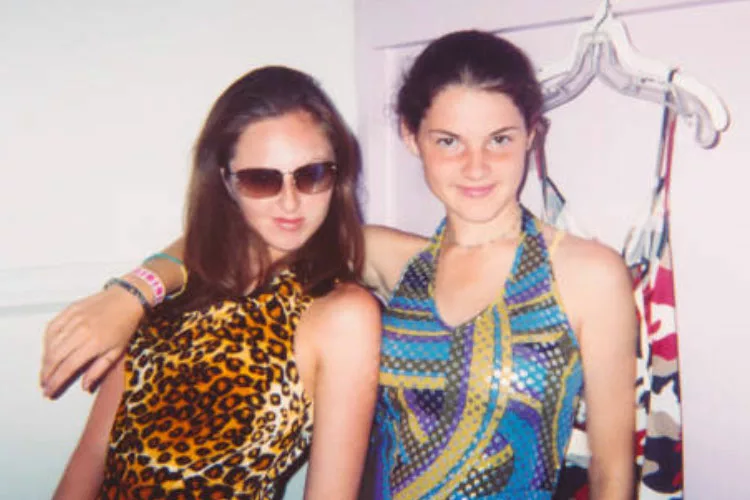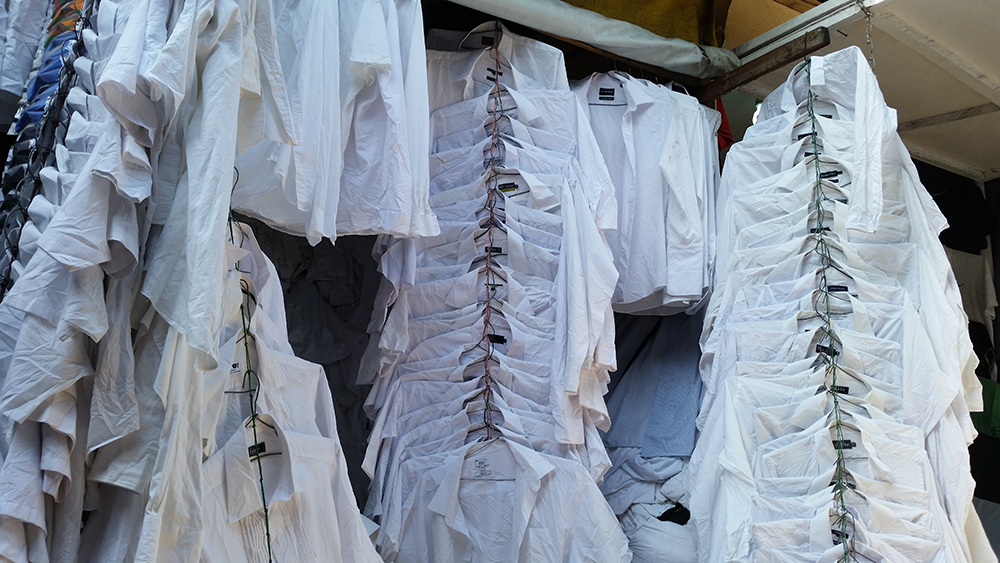
Just moved to New York City? Or back in with your parents? Or maybe trying the KonMari method or becoming a minimalist? Or like me, just really liked the idea of only having pieces that you really enjoy wearing in your wardrobe. Whatever the reason, if you have bags of unwanted clothes that you’re about to drop off at the local thrift store or in a bin on the street please hold that thought for a moment.

First, let me say there is nothing wrong with thrift stores. When I was a teenager I used to love the excitement of discovery and finding the unexpected. –my favorites being Men’s striped satin pajama sets that I would buy and wear as separates — usually with Doc Marten combat boots and a v-neck men’s cashmere cardigan with elbow patches — also second hand. But to be honest it’s now been a long time since I’ve heard the siren song of the Salvation Army. Still that didn’t stop me from bundling up all my own used clothes once or twice a year and dropping them off at the local thrift store — and mentally patting myself on the back for not just tossing them in the trash.
Our Clothes Are Dead White Man’s Clothes
I thought this was the best solution until I stumbled across “Dead White Man’s Clothes”. Not the name of a punk band, but an exhibit created by J Branson Skinner and Liz Ricketts of The OR Foundation that traces the journey our discards take from our homes to West Africa.
The vast majority of clothing donations gets bundled and shipped to places like Ghana to be sold in their market. This is hardly unsurprising when you realize more than 3.8 billion pounds of clothing are donated in the U.S. each year, the equivalent of 166,000 t-shirts donated every single minute.
In Ghana our old clothing is called Obroni Wawu and it translates to “the white man has died clothes” or “the foreigner has died” clothes. Ghanaians started calling it that because in the ’50s when they first started getting our exported clothes they assumed someone had died. It was unimaginable that someone would just get rid of clothing that still had wear. Fast forward 70 years and they’ve imported, along with or perhaps because of, fast fashion, our Western ethos of excess and disposability.
The exhibit Dead White Man’s Clothes looks at the unintended consequences of our donations.
Unintended Consequences Of our Donations
- 17 million secondhand items arriving each week in Accra creating a supply that outweighs the demand.
- Much of our discarded items contributing to their local landfills.
- Women working as porters in the market who are often victims of debt-slavery
- The ubiquitousness of our cast offs has nearly destroyed the local textile industry.

Liz pointed out to me the rather bitter irony that historically Accra was a main point of exit for people who were enslaved coming directly to the US. Now it is the main point of entry for most of our used stuff: not just clothing but also cars, electronics, and e-waste. Add to that the history of colonialism. And how we’re transitioning from pure extraction of resources in these places to now dumping our waste on them only magnifies the situation.
One could read this as “donations are bad” but it is far more complex than that. This market for our clothing also employs over 30,000 people and, for better or worse, is a central part of the economy. It’s unrealistic to think that it will (or should) stop. But, it can be improved if we are more careful about what we donate. If it’s stained, torn, too worn out or of poor quality don’t donate it. My litmus test is “Is it in a condition that I would feel okay to give it to a friend?”. If not, I’m not giving it away at all because it increases the chance of it being put in some other countries landfill.
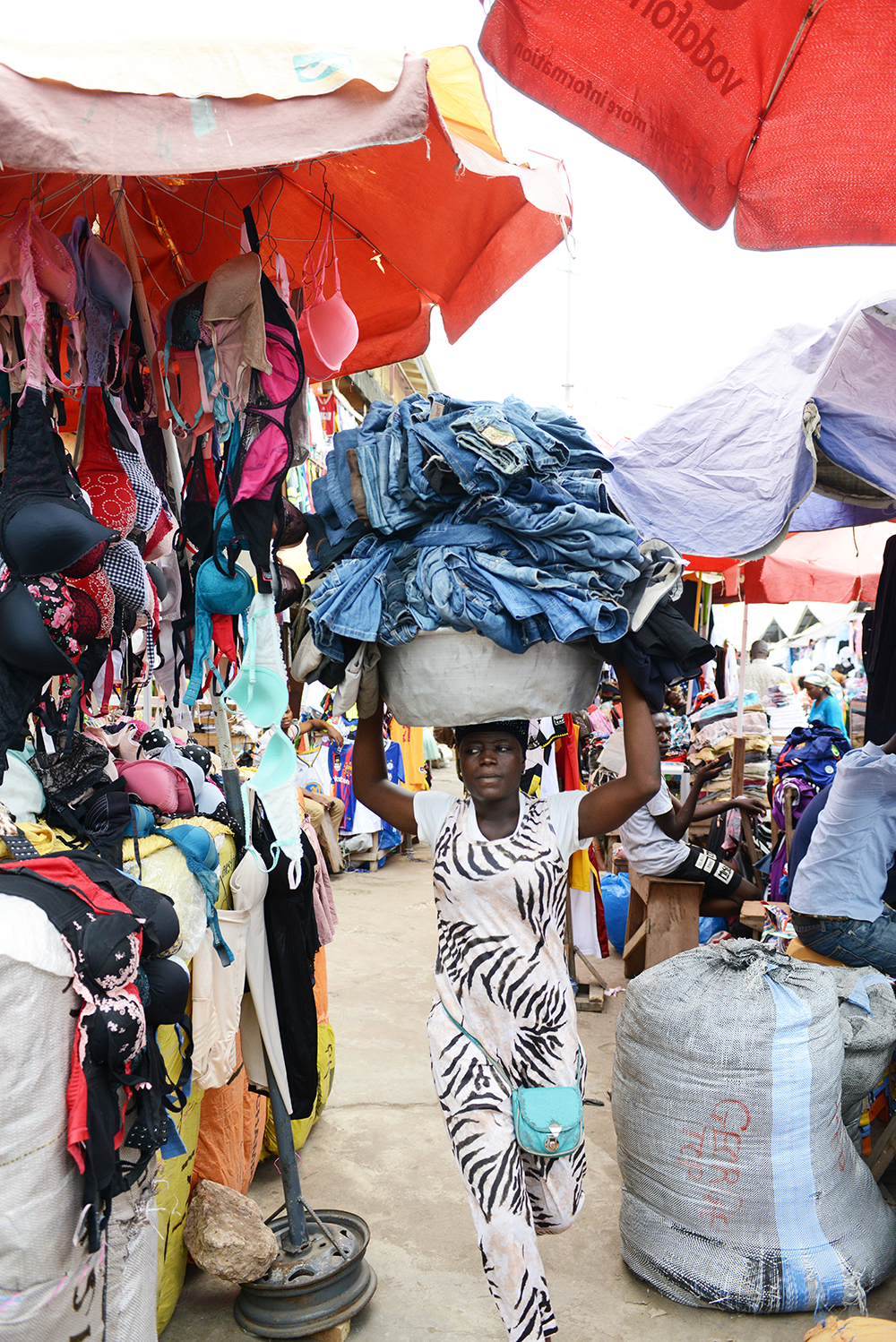
It really boils down to this: that all life is interrelated. We are all caught in an inescapable network of mutuality, tied into a single garment of destiny. Whatever affects one destiny, affects all indirectly.
— Dr. Martin Luther King, Jr
Now you’re thinking “That’s great. But now what should I do with all my stuff?”
No worries- We’ve created a guide for what to do with your clothes other than donating to a thrift store here!
All photos in Ghana courtesy The OR Foundation
–Katya Moorman
Related Articles
Where to donate your old clothes beyond a thrift store or basic charity
Where and how to swap instead of shop
Wear, Repair, Repurpose: We talked to the author Lily Fulop on mending your clothes
Visible Mending: Tips + Tricks to Get the Look
5 Best Books on Climate and Consumerism


